What's the greatest DLC you've ever played?
This week's Big Question, answered by our writers
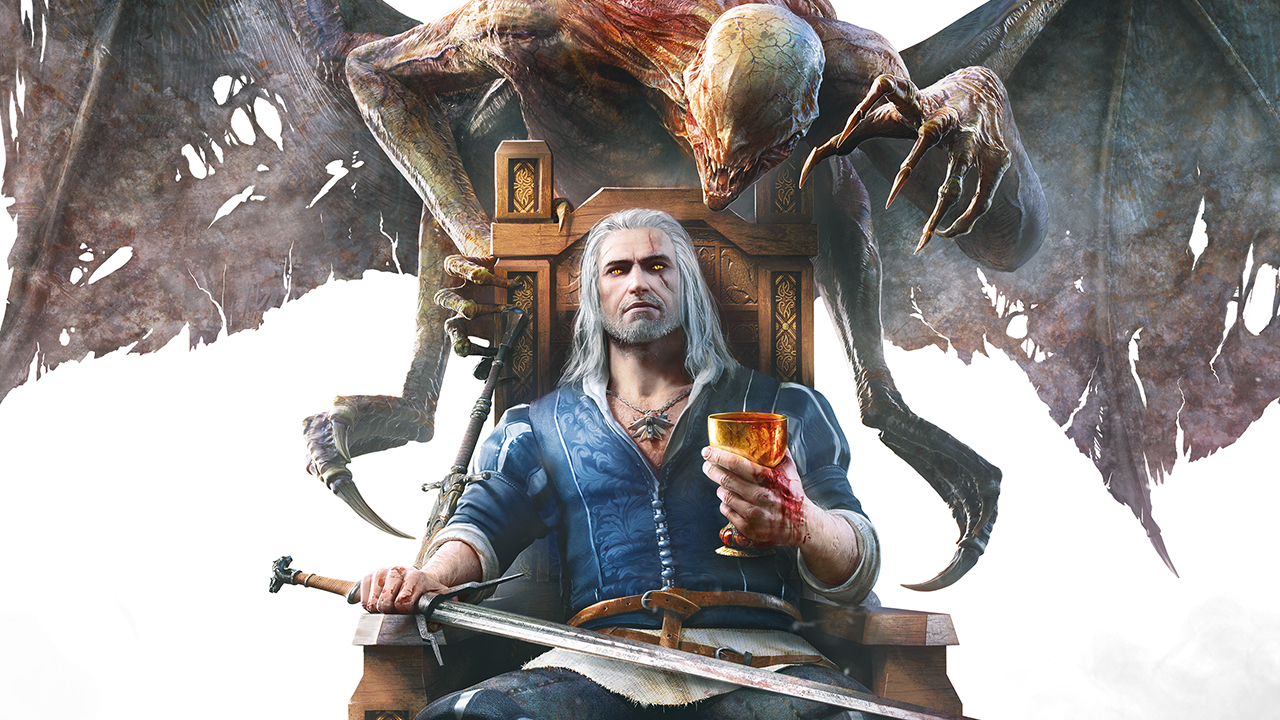
Sometimes a game is so good that when you get to the end, all you want is more of that exact game. That's when DLC can be the perfect dessert, rather than a dish of tepid leftovers served six months after the main meal. We asked our team of decided gamers to find out which added extras really stood out and deserved an honorable mention.
This is the latest in a series of big questions we'll be interrogating our writers with, so share your answers and suggestions for topics with us on Twitter.
Bloodborne: The Old Hunters for the bosses alone
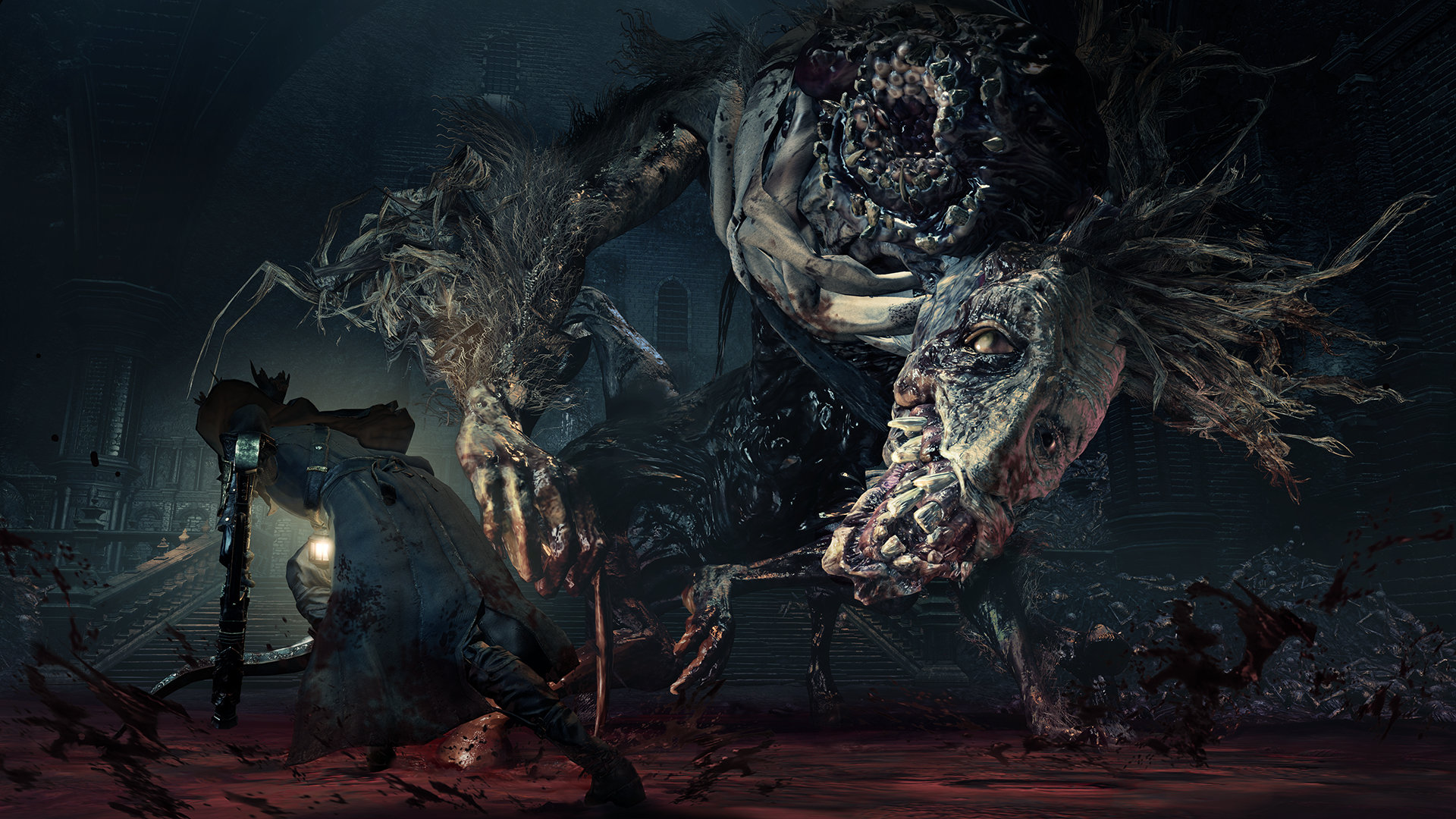
Like any modern From Software game, Bloodborne has some hellacious boss fights. Gehrman, the Moon Presence, Ebrietas - they're all bastards. But for my money, the three hardest bosses in all of Bloodborne are in its Old Hunters DLC. Those are: Ludwig, the Holy Blade, Lady Maria of the Astral Clocktower, and the Orphan of Kos. The Orphan, in particular, took me several dozen attempts, earning it a special place in my From Software hall of fame alongside Sekiro's Sword Saint Isshin. That said, fighting Ludwig is like trying to fight a hurricane, and Lady Maria is every bit as deadly as you'd expect given her legacy. Even not having played the DLC in years, I can still remember most of their move sets, so they've definitely stuck in my brain.
Bosses aside, the Old Hunters is also dripping with inventive and deviously placed enemies that test everything you learn in the base game, and that's a sure sign of good DLC. Besides, if nothing else, it's more Bloodborne, and I'll never pass that up. Austin Wood
Bioshock 2: Minerva's Den - just give me more Rapture
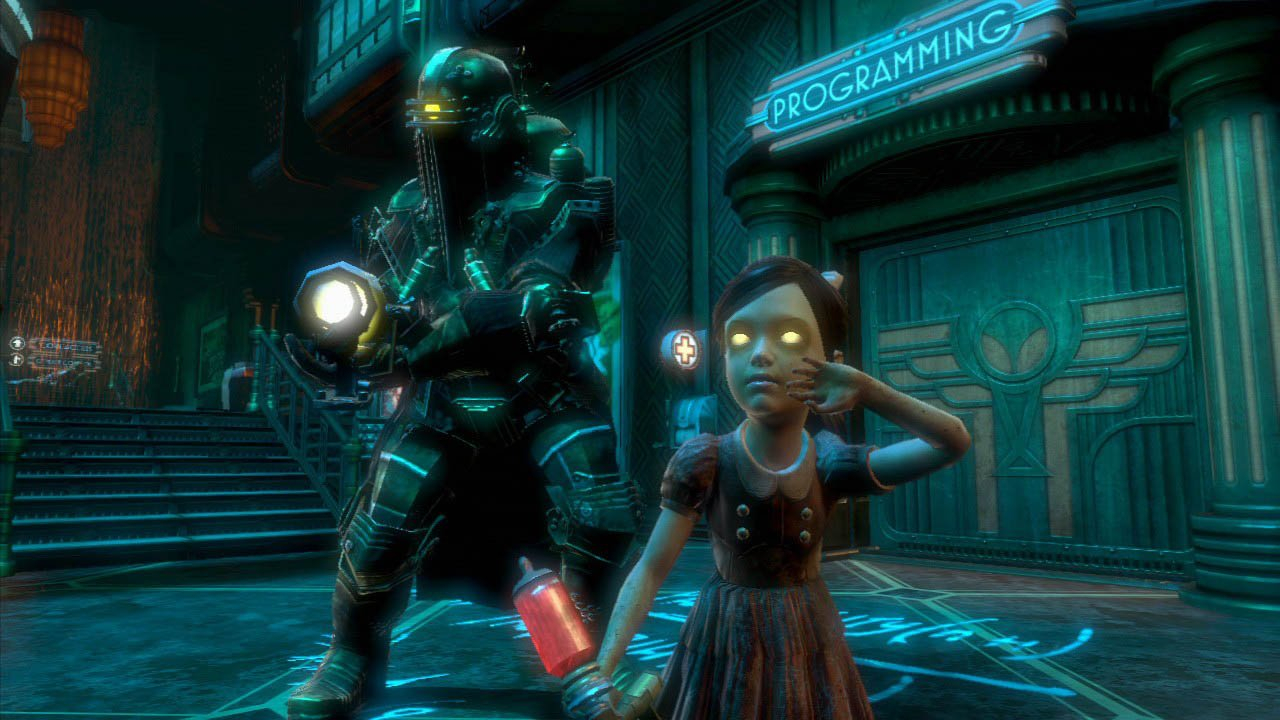
Harnessing the power of placemaking and narrative excellence, the absorbing tale of Charles Porter and Rapture's central computer system is my favorite DLC. While a trip around an IT Department might not sound the most intriguing of stories, Minerva's Den is very worthy of its inclusion in the world of BioShock. Plus it's more Rapture with its distinct sense of place, laced with mystery, a sort of elegant decay, awesome design and aesthetics and gripping stories of people, paradise, and perdition - so what's not to like. It beautifully portrays and guides you around previously-unseen locations that immediately make contextual sense in Rapture. However, what really makes Minerva's Den is the short story that is the intimate telling of Porter's fascinating story. A humble, likeable man, tormented and changed by his past, goes to Rapture to further its technology and integral computing core and ultimately ends up receiving the same bias and stereotypes he sought to escape, culminating in some (semi-predictable) scheming and back-staberry. It even manages its own little BioShock-esque twist at the end, which is topped by the truly lovely and touching last few steps you have as Porter leaves his residence and personal office. Rob Dwiar
The Witcher 3: Blood and Wine gave my Geralt a fitting epilogue
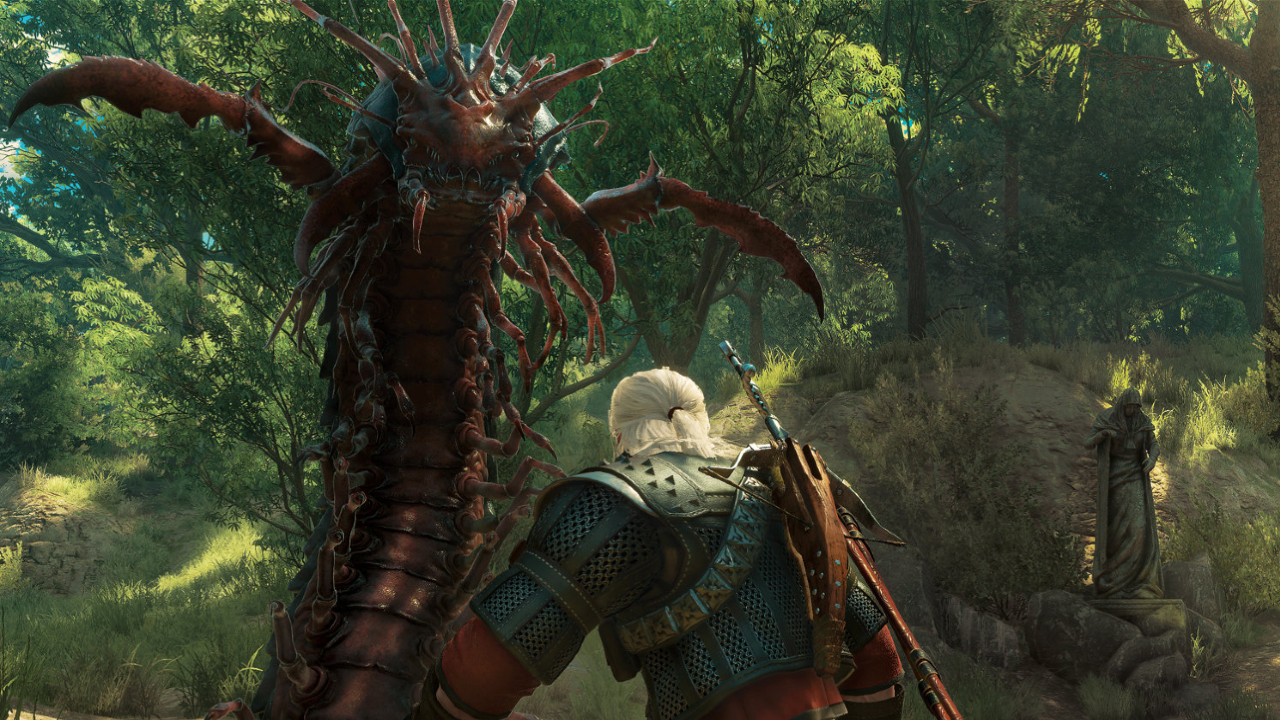
Blood and Wine alone outshines most other full-fat RPGs. It’s that good. The sun-soaked vistas of Touissant made for a perfect backdrop to what CD Projekt Red could’ve said was The Witcher 4 and called it a day. Seriously. It contains as much depth and lore deep dives as the 90 or so hours that preceded it; it’s probably the best value-for-money DLC ever made – by a wide margin.
On a personal note, though, it gave me the chance to rewrite Geralt’s ending from the main game. There, I landed on the Bad Ending thanks to a combination of not looking up the specific requirements needed to end things on better terms (one involved a snowball fight, I’m not kidding) and role-playing as an even grumpier, surlier Geralt than usual. In Blood and Wine, the monster hunter got to (spoilers) put his world-weary feet up at his own large estate, with a glass of wine in one hand and Yennefer in the other. That’s my canon ending, damnit. Bradley Russell
Sign up to the GamesRadar+ Newsletter
Weekly digests, tales from the communities you love, and more
BioShock Infinite: Burial at Sea blew my damn mind. Twice.
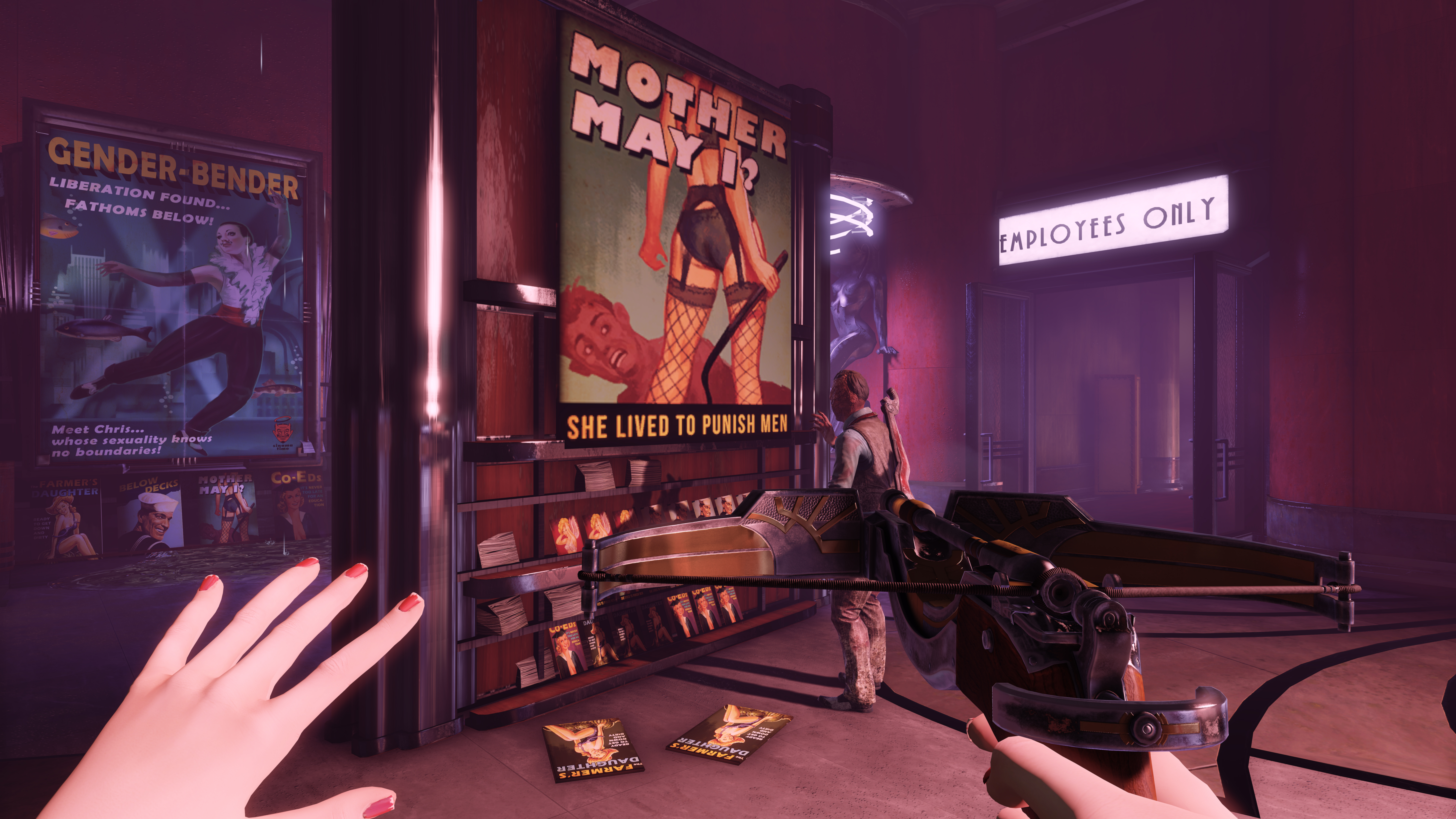
Not content with its bombshell, WTF ending of the main campaign, Irrational's two-part expansion to BioShock Infinite, Burial at Sea, somehow forces you to rethink everything you thought you knew about the BioShock universe, again. I don't really want to go into spoilers here, but what appears to start out as an alt-universe thought experiment slowly reveals itself to be another piece of deep, important connective tissue holding the entire BioShock franchise together, with huge implications for the future of the series at large.
Also, playing as Elizabeth in Episode 2 makes for a genuinely compelling stealth game that finally makes better use of the Rapture's survival horror ambience. A BioShock fan would be criminal to write Burial at Sea off as needless ancillary content; it's as critical to the story as any of the main campaigns. Alex Avard
Mass Effect 3's Citadel DLC stole my heart and helped me say goodbye
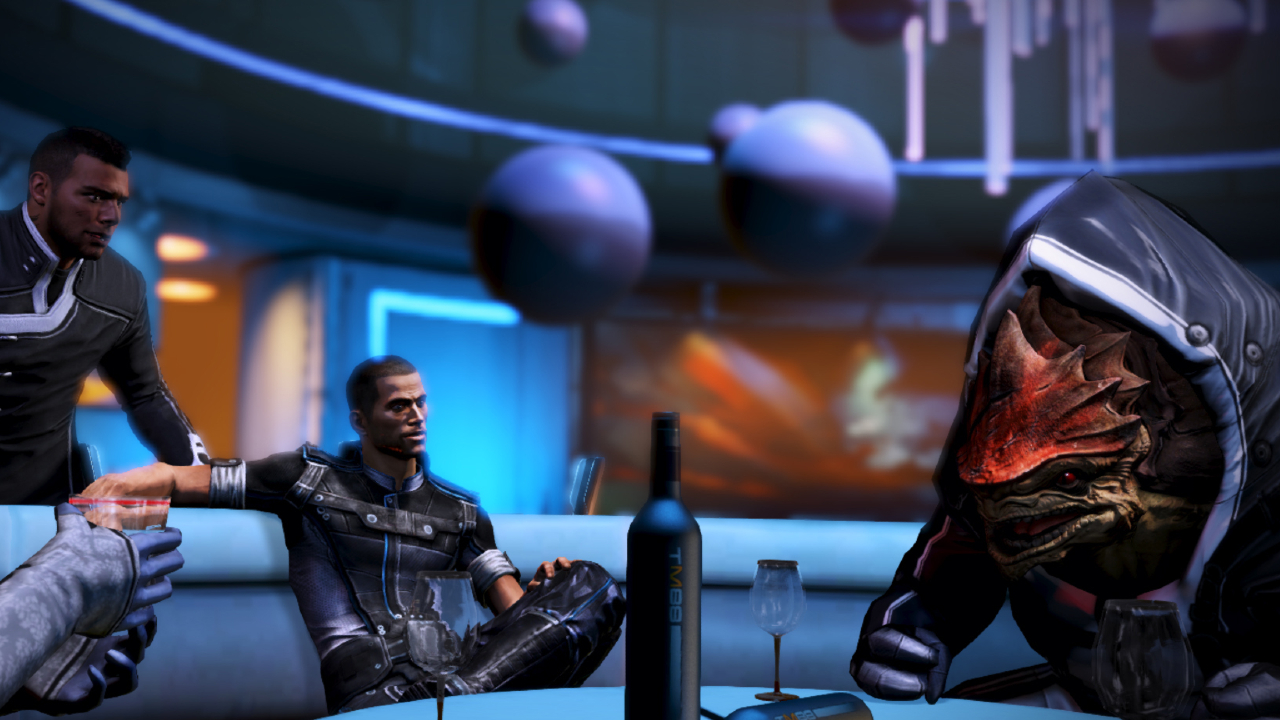
Mass Effect is one of those series that completely consumed me. By the end of it, I was already considering dying my hair the same shade of red that my Commander Shepard sported, and buying every article of clothing available with the N7 stripes on it. BioWare's space-faring RPG left a lasting impression on me thanks in large part to its characters. With everyone from my space boyfriend Garrus to my space girlfriend Liara, I felt emotionally tied to every face aboard the Normandy that had gone up against impossible odds with me. When I got to the third and final game way back when, I wasn't ready to let go, and that's when the Citadel DLC entered the picture. Filled with self-aware jokes, goofy hijinks, and a rocking party in Shepard's pad, the Citadel DLC brought everyone together again with oodles of extra content - it was the perfect way to say goodbye to a group of fictional characters who felt like they'd become real friends. Heather Wald
FIFA Ultimate Team - the DLC mode that took over the world
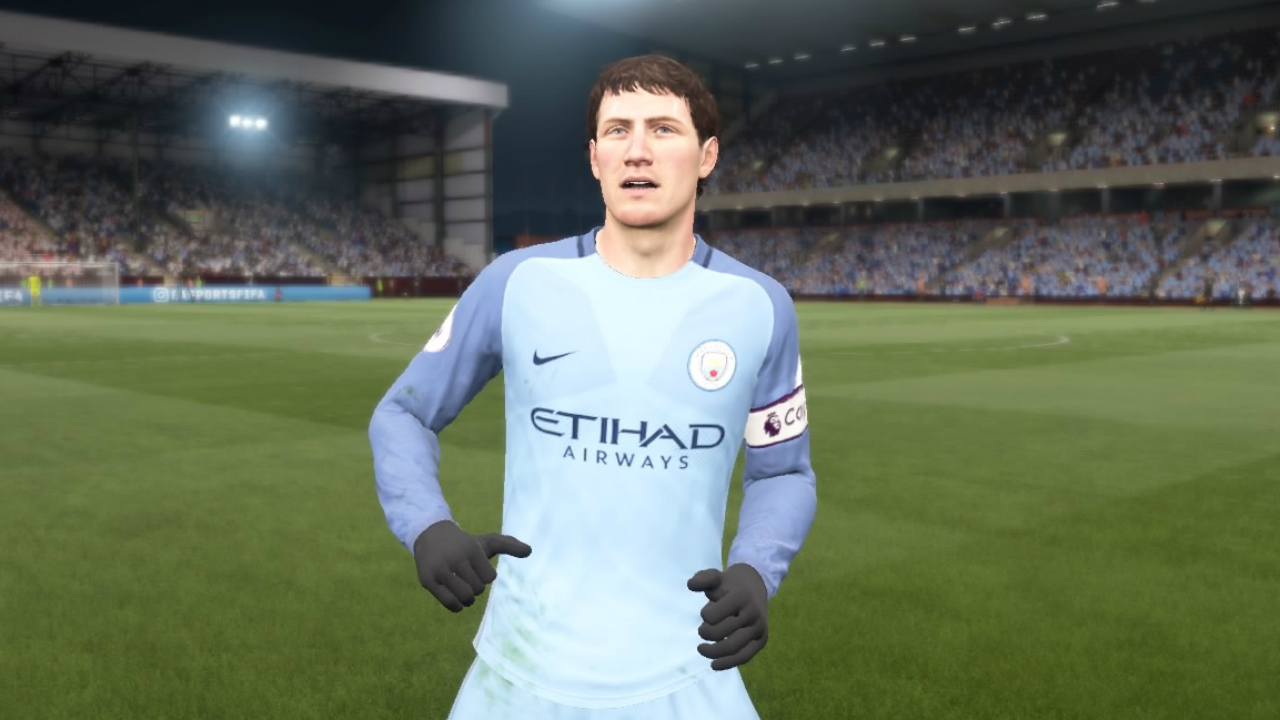
Few recall that the all-conquering Ultimate Team started out as a DLC offering. That’s right: the biggest – and most controversial – mode in sports gaming began life as a budget add-on for FIFA 09, in which you created yourself as captain, then added your favourite players, in card form, around you.
While it’s fashionable to tear the mode to pieces now, with claims of it being pay-to-win and tantamount to gambling, it’s spent the last ten years scratching my Panini itch and providing some salvation from the perils of raising two young kids. So I have to choose that really, don’t I? At least until one of those children defeats me at FIFA 28, whereby I’ll join everyone else in decrying it as the devil’s work. Ben Wilson
Fallout 3: Broken Steel
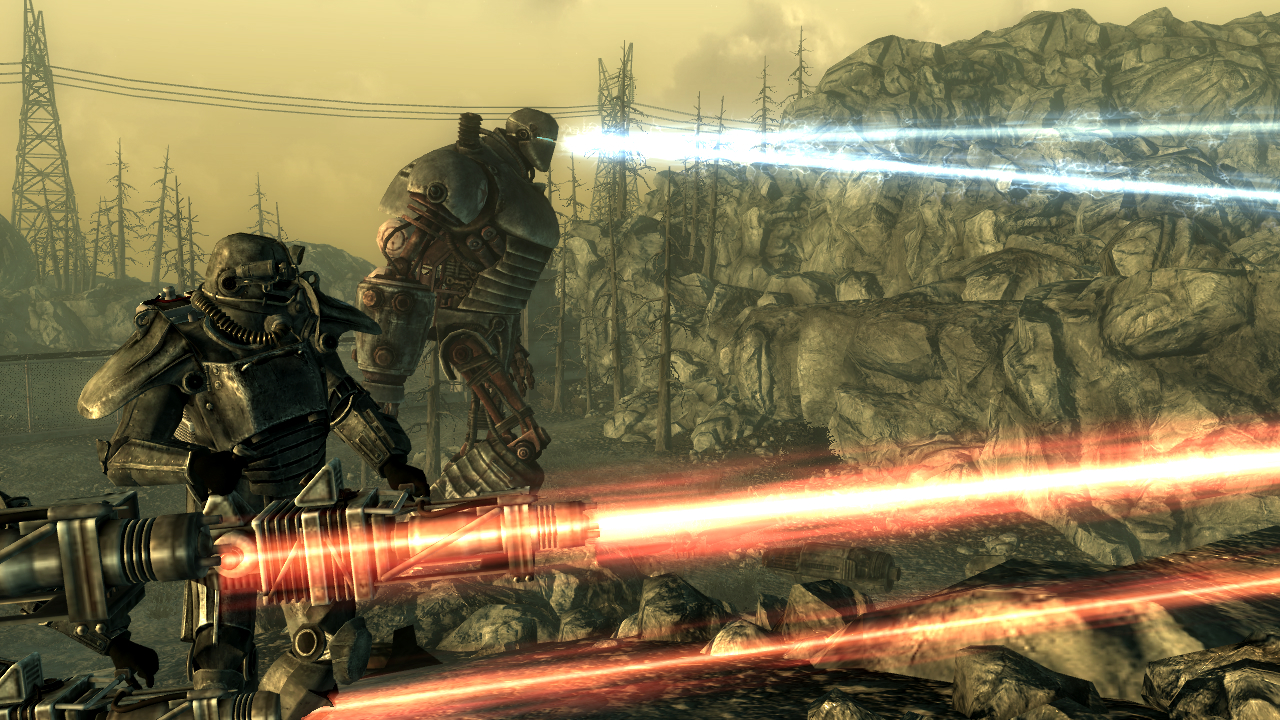
Fallout 3 is one of my favorite games, but the ending… well, let's just say I didn't appreciate being forced to kill myself when my in-game bestie - Fawkes the super mutant - could have sorted the whole mess without taking a scratch. His limp excuse about not wanting to rob my character of his 'destiny' didn't help, and the whole thing left a bitter taste in my mouth. That's why I was so happy when Broken Steel got announced. Set after the main quest, it retcons the finale and reveals that, no, you didn't die after all (phew). This allowed me to continue adventuring in a world I'd come to love, and I had some of my most memorable gaming experiences doing so. Benjamin Abbott
GTA 4: The Ballad of Gay Tony

Seeing the duo of expansion packs arrive for GTA 4 was really the first time I understood the value of a DLC to reinject life into a game I'd played to 100% completion. The Ballad of Gay Tony dusted away the sadness of GTA 4's ending, the biker grime of The Lost and the Damned, and paved the way for a neon blur of opulent excess. It was a great showcase of Rockstar really letting itself have some fun. It was dramatic, outlandish, and utterly indulgent. It showed a different side to some of GTA 4's characters and introduced Yusuf, played by comedian Omid Djalili, who is a brilliant crime lord-wannabe in a shitty tracksuit. But most importantly it allowed you to enjoy GTA for the madness it is. Donutting ridiculous cars in equally ridiculous locations, parachuting in for side-mission fun, managing a neon-dripping club, and just generally causing chaos. Sam Loveridge
The Witcher 3: Hearts of Stone is equal parts horny and creepy
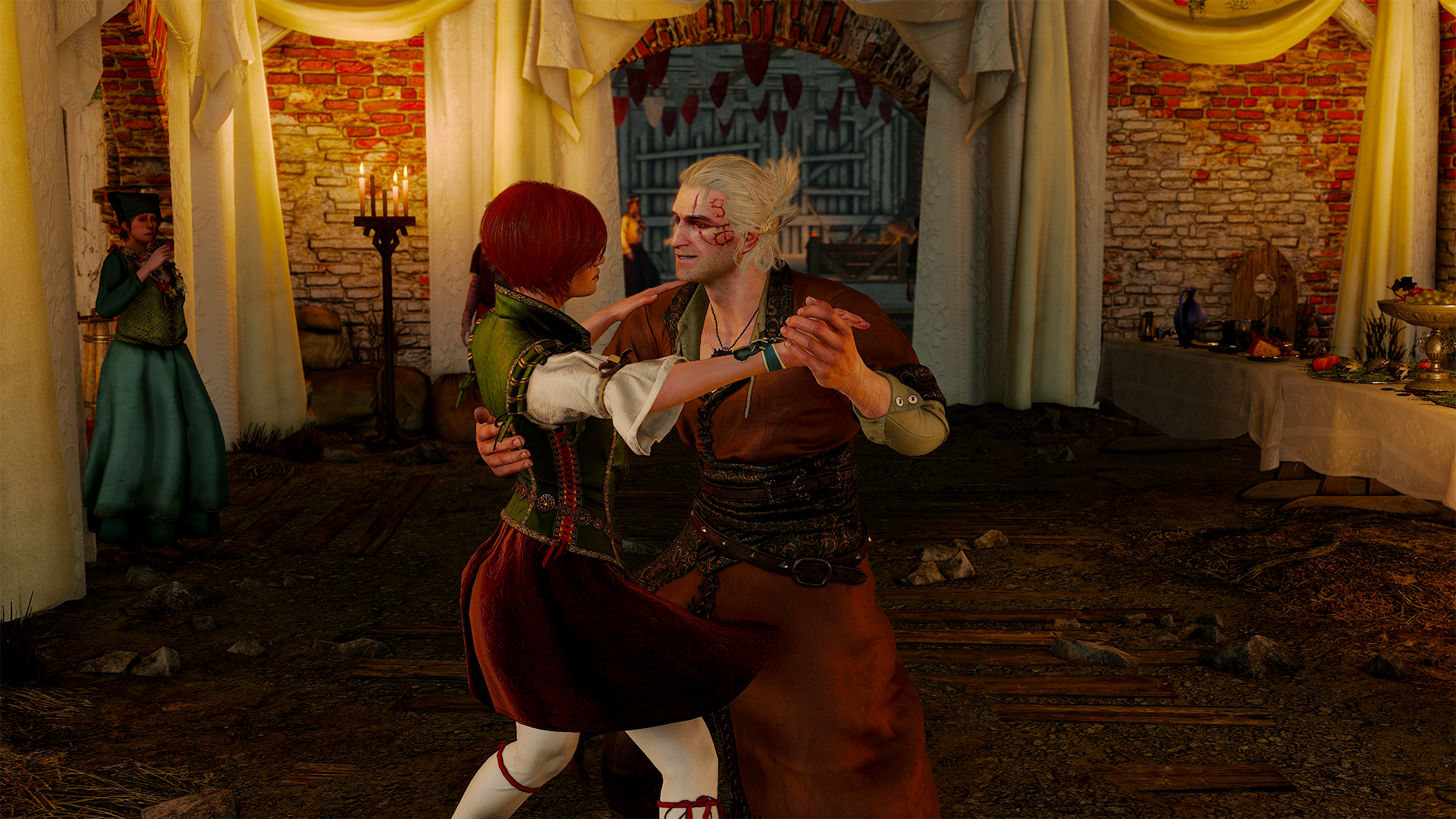
Since someone already snagged the other fabulous and enticing DLC from The Witcher 3, I'll happily settle in to discuss the merits of Hearts of Stone, the smaller (but equally great) expansion. Hearts of Stone has it all: another love interest in the form of Shani, a toad monster that's actually a cursed prince, a horny drunk ghost possessing Geralt's body, and a noble who can't die because of some black magic shit. It may be set on the same map as the core game, but it adds tons of new places for you to explore and discover (and one side quest that is still broken to this day, but never you mind).
Hearts of Stone is about ten hours long, but it feels longer because of how in-depth the story gets (and how long I had to walk around with that horrible scar that marred my beautiful Geralt's face). It's hard not to get incredibly invested in the story and grow uneasy at the site of its antagonist, Gaunter O'Dimm. That's a testament to how good the DLC is - Hearts of Stone introduces a brand-new cast of characters that we have to care about in a tenth of the time as the original game. And it works. Alyssa Mercante
The Last of Us: Left Behind
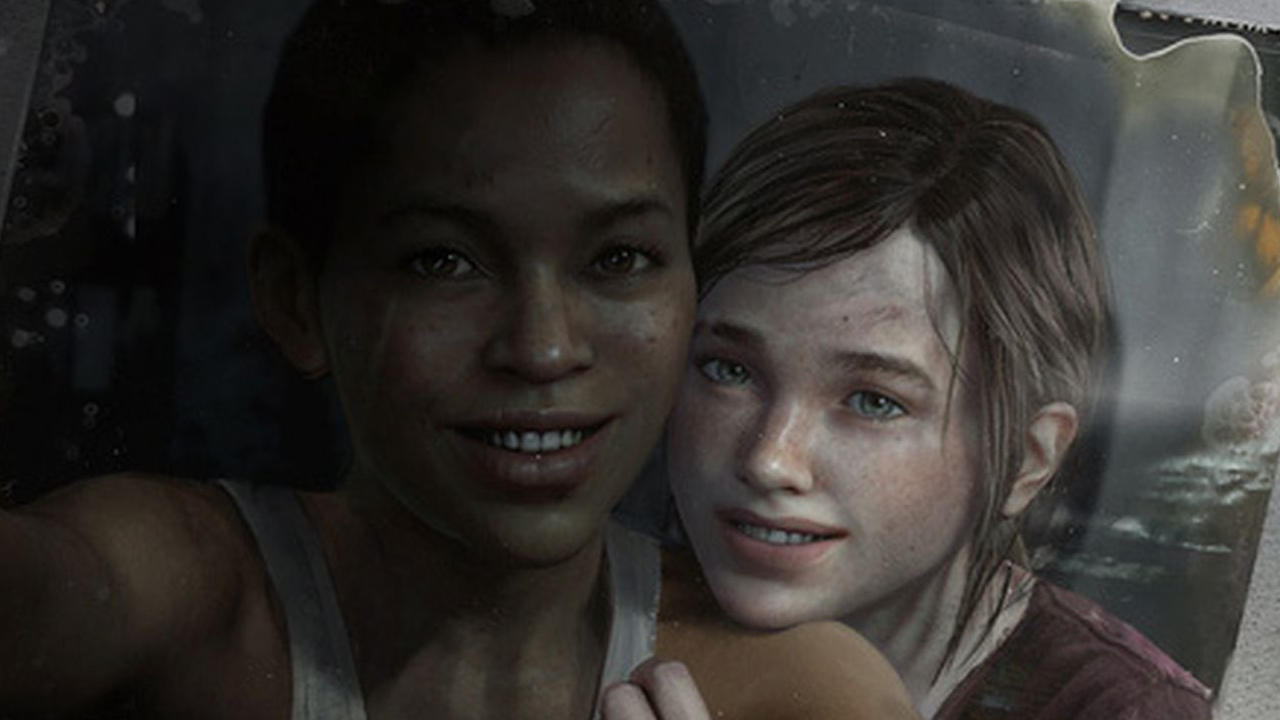
How do you follow-up one of the most beloved video game stories of all time? Well, you fill in one of the most intriguing gaps in the original's story. In this case it's "How did Ellie end up carrying an infection?"
It would have been easy for Left Behind to try and go bigger than the main game, ramping up the spectacle and attempting to up the ante. Instead, it focuses on what makes The Last of Us so special, putting an emphasis on the quieter moments of the apocalypse, as Ellie and best friend Riley explore an abandoned mall. From playing on a broken arcade machine to finding a photo booth to take photos in, a series of tender moments early on only make this substantial DLC's gut-punch ending all the more effective. Ben Tyrer
Any DLC for any game I like playing

The problem with lists like these is that they immediately age you. The answer should probably be something like Baldur's Gate 2: Throne of Bhaal, Diablo II: Lord of Destruction, or Warcraft III: The Frozen Throne, but I honestly can't even remember if you downloaded these expansions or had to go physically outside to get them. So now I'm looking to what is clearly the best DLC expansion, which is The Shivering Isles for Elder Scrolls 4: Oblivion. It was a hugely ambitious premium expansion packed with content, new quotes, and the Sheogorath's Plane of Oblivion was rad AF to explore. It was also released back in 2007, so I have no idea how poorly it has dated or if anybody else on team even remembers it. Same goes for Fallout 3's Point Lookout, GTA 4's The Ballard of Gay Tony, or BioShock 2's Minerva's Den. I can't decide; I think I like expansion packs more than I like original games. Is it too late to just make a Horse Armor joke? Josh West
Sleeping Dogs' Zodiac Tournament gave us old school kung fu
Sleeping Dogs is big-budget John Woo fan-fiction, but the developers at United Front Games (RIP) got to show their love for an earlier era of Hong Kong action cinema with the Zodiac Tournament DLC. From the "Feature Presentation" title card on, the expansion drips with reverence for '70s era kung fu movies: a funky soundtrack, a grainy film overlay, a nefarious mastermind with a Fu Manchu mustache. It's common for games to put out arena expansions to wring more life out of their combat systems after release, but the framing device of a martial arts tournament on a secret island (which somehow nobody else ever goes to check out, despite it being clearly visible from the shore of Hong Kong) elevates Zodiac Tournament into something ridiculous and great. I only wish United Front Games was still around so it could make a whole game with that Bruceploitation vibe. Connor Sheridan
Got a question you'd like the GamesRadar team to answer? Let us know on Twitter.

Rachel Weber is the former US Managing Editor of GamesRadar+ and lives in Brooklyn, New York. She joined GamesRadar+ in 2017, revitalizing the news coverage and building new processes and strategies for the US team.


